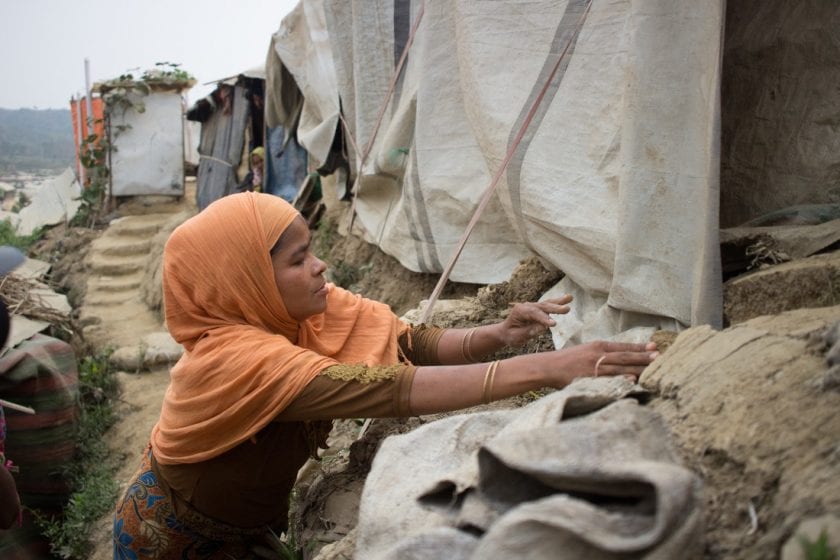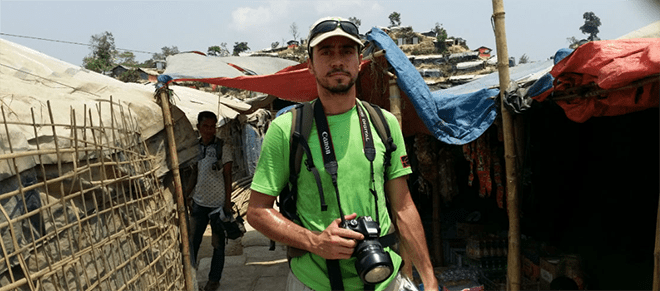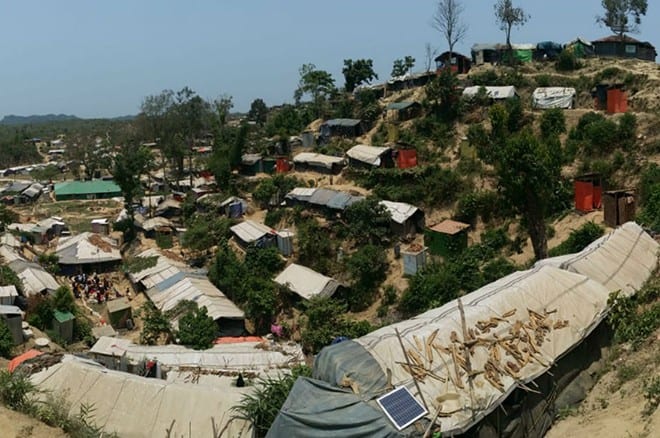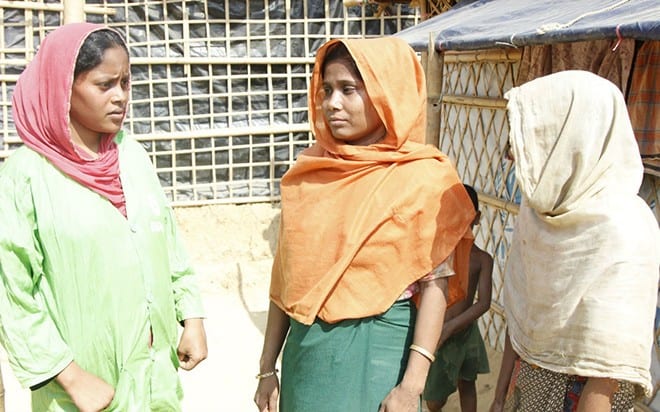New report from the Greek Council for Refugees (GCR) and Oxfam sheds light on the inside of the new 43-million-euro migration center on the Greek island of Samos. The report comes ahead of the 6-year anniversary of the EU-Turkey deal, and in the midst of already more than a million people fleeing conflict in Ukraine to seek asylum in EU countries. If ever there was a time to learn from the failures made in Greece, it is now.
The report found:
- Approximately 1 in 5 people have been in de facto detention for two months. This is despite a Greek court finding this practice illegal in the ruling on a case of an Afghan resident in the Samos center last December. The Greek administration continues to deny this illegal practice. Yet, testimonies gathered by the Greek Council for Refugees and Oxfam show this practice remains very much a reality.
- The use of “revenge tactics” in response to NGO reports, media coverage, and legal action by asylum seekers on illegal detention measures. This has included early morning raids, unexplained transfers to the police station, and oral eviction notices to residents appealing a negative asylum decision.
- The excessive use of security. There is constant CCTV monitoring of all residents and an 8pm curfew. To exit and enter the camp, residents need an “asylum applicant” card. Some people – like the newly arrived, those who can’t afford the second subsequent asylum application fee, or those waiting for the Greek authorities to examine their subsequent asylum application – do not have this card. In the future, not having these cards may keep people from getting food and clothes.
Testimony from T., a young Afghan man, trapped on Samos since 2019:
“I just want to go outside. They don’t let me. They are keeping me here as a prisoner. If I had to choose, I would say that I would prefer the previous camp – at least, there, I was free. I was not living in a cage. At least, I had my freedom to go somewhere.”
This reception center in Samos will serve as the blueprint for the EU’s rollout of centers across the Greek islands. Costing the EU 276 million euros, they are a “new chapter in migration management” according to EU officials, and have the explicit aim to “discourage them from coming in the first place” according to the Greek Minister for Migration and Asylum. The EU has already invested in building two new centers on the islands of Kos and Leros and has plans to build two new centers on Chios and Lesvos.
Alkistis Agrafioti, Advocacy Officer at the Greek Council for Refugees:
“Going to the center, you have only one question: how is this suitable for people? It feels like visiting a prison located in the middle of nowhere. To enter and exit, people must go through a whole array of security measures with turnstiles, magnetic gates, x-rays, scanning cards and fingerprints. Body and bag searches as well. According to testimonies, even children going to school do not escape this daily procedure.
“What we saw when visiting the new Samos center and what people told us is that their previous degrading living conditions at the old Vathy camp just turned into prison like conditions in the new facility. The security guards are all over and you feel followed at every step. One resident we talked to told us how it felt like there were three security guards to one person. We met with an Afghan young man, suffering from post-traumatic stress disorder, that has turned to self-harm several times as he is trapped on the island for the last 3 years. For two months, he could not even exit the new facility due to an illegal exit ban. Many asked ‘what are we being punished for, when all we want is to rebuild our lives and be safe in Europe?’”
Evelien van Roemburg, Head of Oxfam EU Office:
“Over half a million people have already crossed Ukraine’s border fleeing a conflict that, according to the UN, could displace 4 million Ukrainians. Now more than ever, the EU must show their lessons learned from its migration response in Greece. As countries bordering Ukraine are receiving most asylum seekers, we cannot risk a repetition of another scraped together European response. The EU and all governments must come together and share collective responsibility to ensure the right of all people, no matter the country they came from, to find a safe refuge.
“This month marks six years since the EU-Turkey deal. And yet, what has the EU done? There is no agreement on migration and asylum rules. The decisions the EU does take, such as this one on closed centers, are taken with little thought to the people they will affect. The EU is hellbent on following its policy of deterrence, a policy that promotes ‘prison’ like conditions, de facto detention and human rights violations. This is not normal, nor is it necessary.
“Alternatives exist. The EU should invest in accommodation that fosters integration and allows people to prosper. It should not be located on the fringes of society, but instead allow people to take part in daily life and have access to basic services like going to the doctor.”
Notes:
Read the Lesbos Bulletin and our Stories from Samos publication.
Names of persons in testimonies changes to protect anonymity.
In December 2021, a GCR and Oxfam delegation visited the Samos CCAC and met with residents, the administration, and civil society organisations operating on the island which provide legal, medical and psychosocial aid to migrants.
In September 2021, the Greek government opened the first Closed Controlled Access Center (CCAC) on the island of Samos built with 43 million euro in EU funds.
In March 2016, EU and Turkish leaders struck a deal which stated that people arriving to the Greek islands irregularly will be returned to Turkey. In exchange, the EU promised 6 billion euros in EU funding to Turkey to support refugee integration and agreed to resettle one Syrian refugee from Turkey for every Syrian returned.
Asylum seekers submitting a second subsequent asylum application must pay a fee of 100 euros. This means that a couple with two children must pay 400 euros. This Greek provision is against EU (Asylum Procedures Directive) and international law. Asylum seekers whose circumstances may have changed since their initial application and now have a much higher chance of receiving a positive asylum decision, still are required to pay this fee e.g. people from Afghanistan. Yet many cannot afford it.
In December, the number of people banned from exiting the camp was around 100, out of the 450 residents.
Οn 17 December 2021, the Administrative Court of Syros, ruling in the case of an Afghan resident of the facility and represented by GCR, confirmed that the prohibition of exit from the Samos CCAC imposed by the Greek state was unlawful.
Residents in Samos CCAC have limited access to healthcare. There is no doctor or medical staff based inside the camp, and residents must rely on the sporadic visits of a military doctor.
For updates, please follow @OxfamEU.







